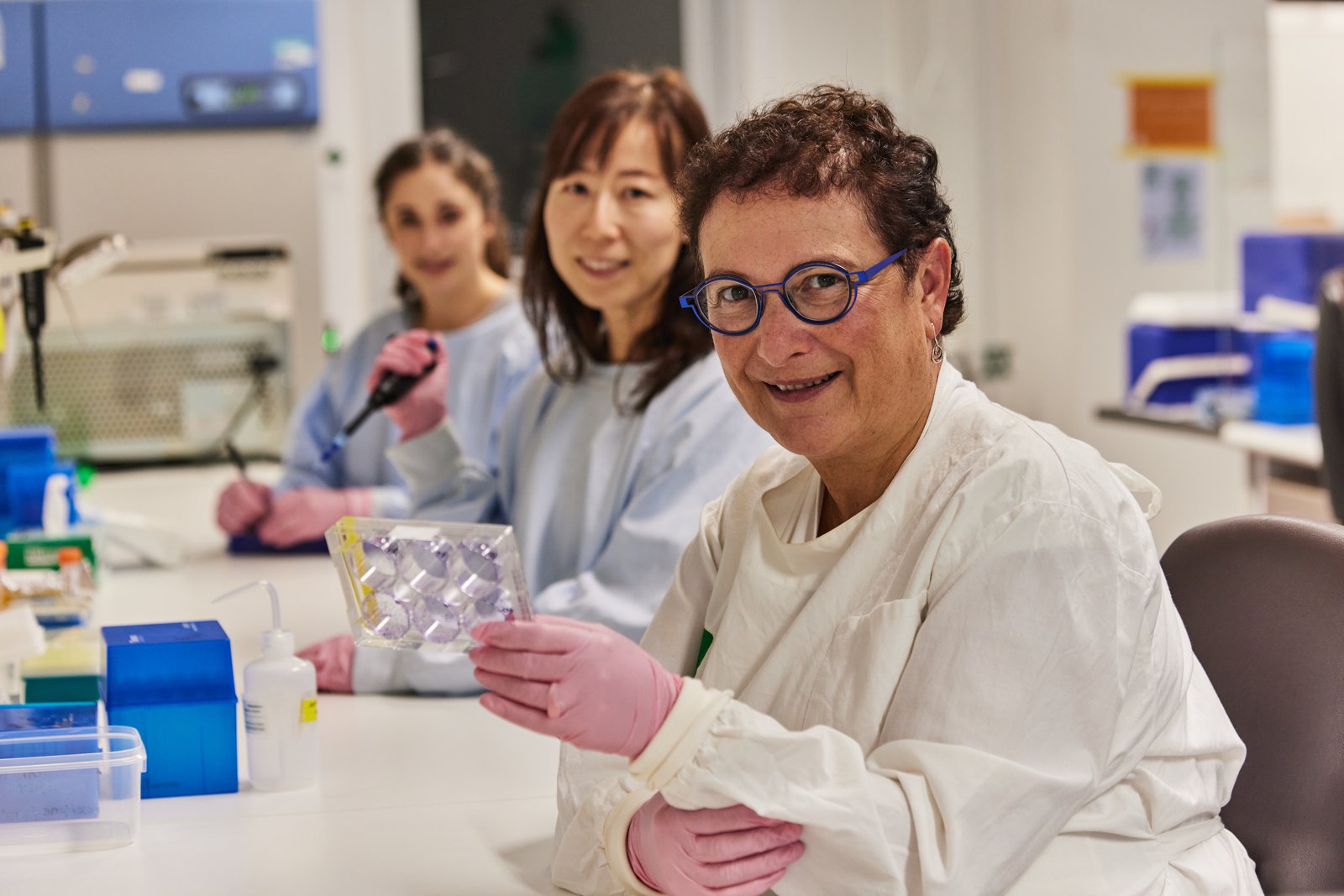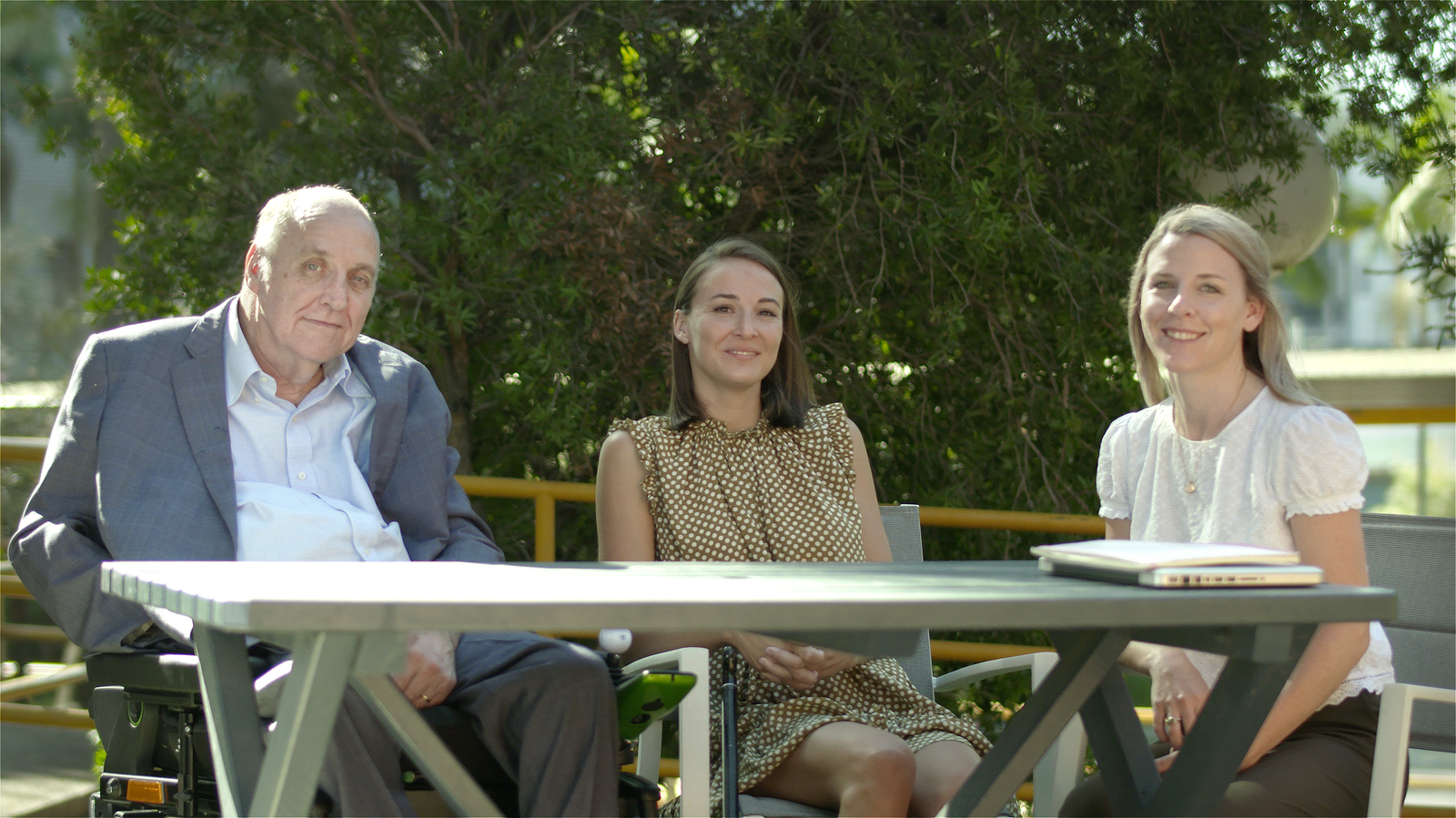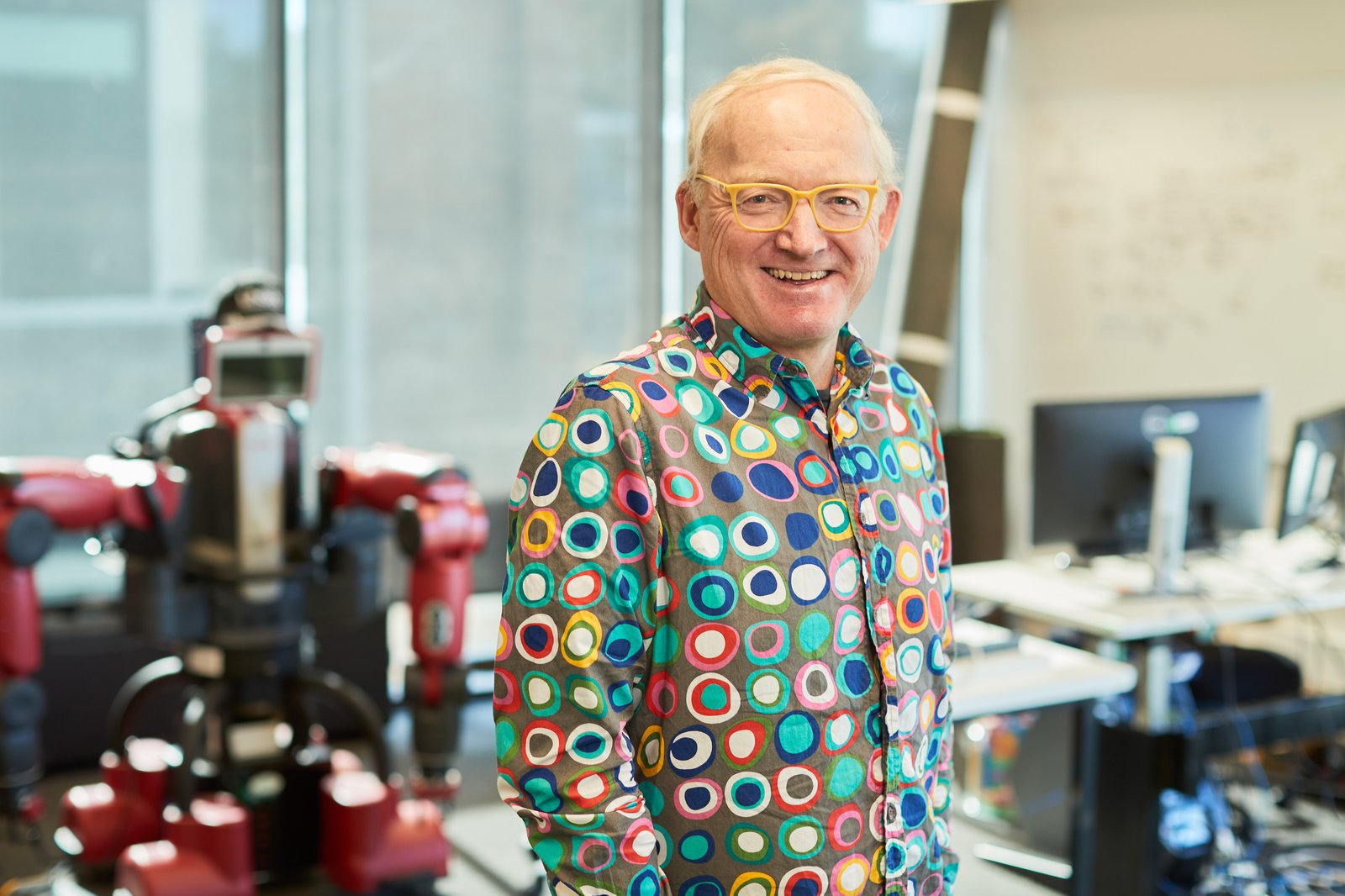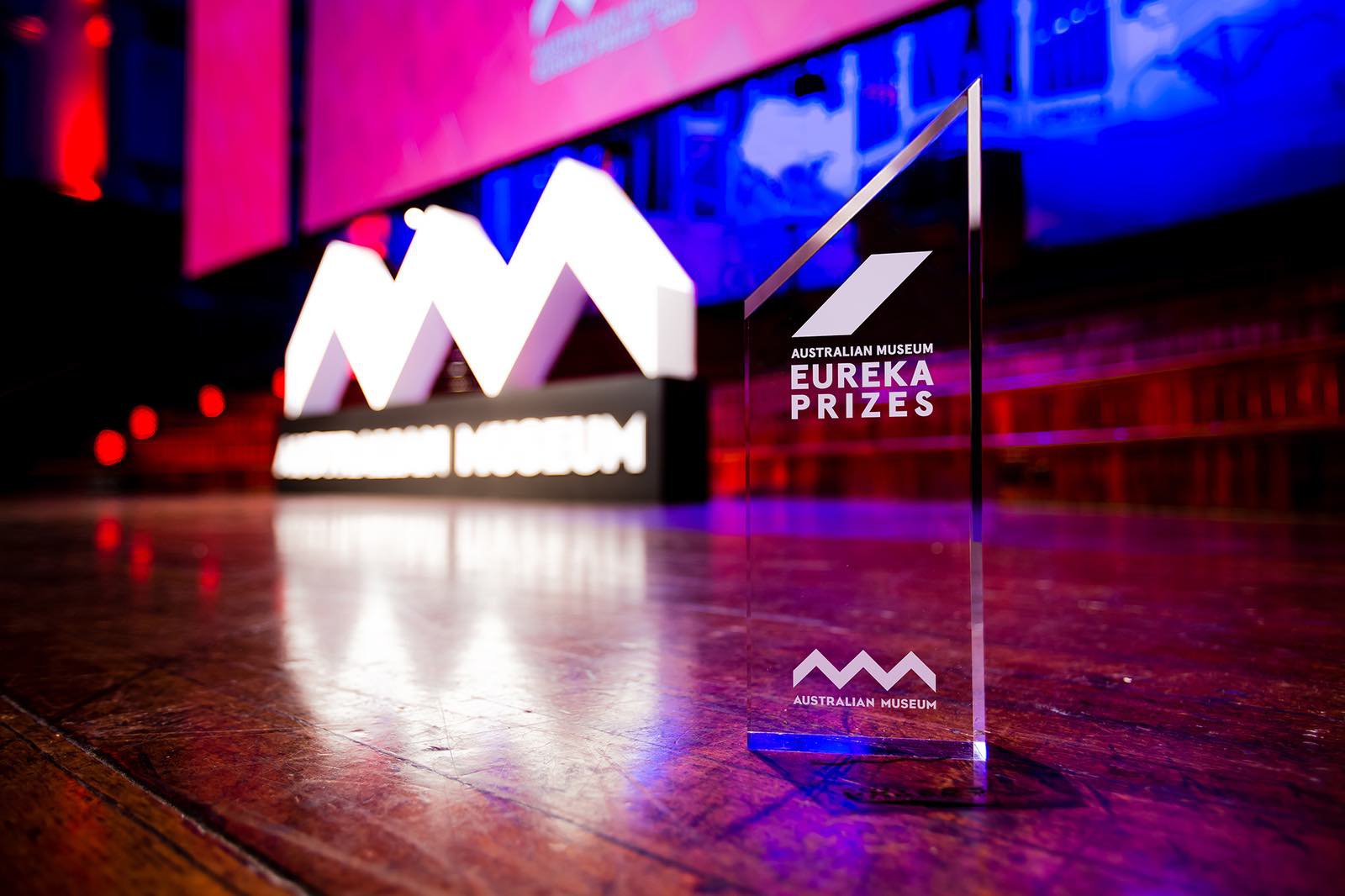2022 Australian Museum Eureka Prizes finalists
45 entries were shortlisted for 14 Australian Museum Eureka Prizes.
On this page...
The Australian Museum (AM) has announced the 45 finalists selected for Australia’s leading science awards, the 2022 Australian Museum Eureka Prizes.
Finalists from almost every state and territory across Australia are in the running for 14 AM Eureka Prizes in four categories, including excellence in Research and Innovation, Leadership, Science Engagement and School Science.
The Eureka Prizes are the nation’s premier science awards, offering $140,000 in prize money across a broad spectrum of research, from environmental to innovative technologies, citizen science, leadership and mentoring.
Research & Innovation
NSW Environment and Heritage Eureka Prize for Applied Environmental Research
Griffith University and University of Western Australia

© Griffith University
Integrating nature-based water management systems into urban design has many social and environmental benefits for the community. Such benefits are often overlooked when projects are evaluated for funding because financial impact is prioritised. INFFEWS changes this by providing comprehensive social, environmental and financial evaluation for balanced decisions.
Reef and Rainforest Research Centre

© Rikard Abom
Australia’s Great Barrier Reef faces many threats, including outbreaks of the coral-eating Crown of Thorns Starfish. In a world first, this team brought together by the National Environmental Science Program successfully applied principles of land-based Integrated Pest Management to effectively control this marine pest. On-water implementation of their research is already successfully defending live coral on the Reef.
Australian National University

© Suzannah Macbeth
Large-scale studies conducted over two decades have enabled Sustainable Farms to identify how biodiversity responds to management changes on farms, and to share these insights with farmers. This research has also informed BirdCast, a digital tool that enables land managers to access the science and predict which birds may live in woodlands under different scenarios.
Eureka Prize for Excellence in Interdisciplinary Scientific Research
University of Adelaide

© University of Adelaide
Heatwaves are becoming more frequent and intense, posing significant health risks for Australians, particularly the elderly and chronically ill. Researchers collaborated with government agencies and migrant communities to develop and implement an innovative heat health warning system. Communicating warning messages can reduce the likelihood of heat-related illnesses and injury and improve workplace safety during heatwaves.
University of Sydney

© University of Sydney
What we eat affects both individual and environmental health. Researchers from fields spanning economics, engineering and nutrition have developed advanced data modelling techniques to trace billions of supply chains, linking food producers and consumers. Their work highlights the drivers of dietary choice and is informing policy for the United Nations and other international bodies.
RPA Institute of Academic Surgery; University of Wollongong; and Chris O'Brien Lifehouse

© RPA Institute of Academic Surgery
Ear reconstruction can involve several complex procedures, especially for children with congenital conditions. The NEW EARS team of scientists, clinicians and biomedical engineers has developed a single-step solution. Their technique combines innovative materials and prosthetics with new 3D bioprinting technology, creating the potential for low-cost reconstructive treatment globally.
Australian Infectious Diseases Research Centre Eureka Prize for Infectious Diseases Research
Associate Professor Eric Chow, Professor Christopher Fairley AO, Professor Catriona Bradshaw, Professor Jane Hocking, Professor Deborah Williamson and Professor Marcus Chen
Monash University and University of Melbourne

© Monash University
Rapid rises in sexually transmitted infections (STIs) are a growing concern internationally. Discoveries made by this team have informed new treatment guidelines and prevention strategies. Their research also established the role of saliva in transmission of STIs and pioneered resistance guided therapy – tailoring antibiotics to individuals to improve cure rates.
University of Queensland

© University of Queensland
The Community for Open Antimicrobial Drug Discovery (CO-ADD) is reinvigorating antibiotic research and drug discovery to help combat the growing problem of microbial resistance. A global, open-access initiative, CO-ADD helps researchers identify and advance new antibiotics, offering free testing of novel compounds and a comprehensive searchable database to avoid duplication of research.
Monash University

© James Trauer
Associate Professor James Trauer leads a team that developed a novel software platform to enable advanced computer modelling of the spread of infectious diseases, including COVID-19 and tuberculosis. This new view of disease dynamics helped drive pandemic responses in the Asia-Pacific region and public health policy in nations where these infections are endemic.
ANSTO Eureka Prize for Innovative Use of Technology
University of Sydney

© Julie Cairney
Hydrogen atoms are light and mobile, making them difficult to image using current microscopy methods. Materials engineer and scientist Professor Julie Cairney solved this challenge by building a new microscopy workflow to map the 3D position of hydrogen at atomic scale. This discovery has applications in the energy, petrochemical and transport industries.
Deakin University

© Saeid Nahavandi
Professor Saeid Nahavandi pioneered the design, development and implementation of the innovative Autonomy Pack system. Combining sensing technology, advanced robotics and AI, the Autonomy Pack can be retroactively fitted onto a range of heavy vehicles. It offers a cost-effective, safe and robust solution for vehicle automation across the mining, transport and defence industries.
La Trobe University; University of Melbourne; Garvan Institute of Medical Research; and Peter MacCallum Cancer Centre

© Daniel Calleja
By applying a patented coating created with cutting-edge nanofabrication technology, the collaborators behind NanoMslide are turning the humble glass microscope slide into a diagnostic lab. Cancer cells interact with the coating and produce an instant colour variation, enabling fast, accurate, cost-effective diagnoses without the need for specialised equipment.
Macquarie University Eureka Prize for Outstanding Early Career Researcher
Telethon Kids Institute and Curtin University

© Telethon Kids Institute and Curtin University
Many Australian children suffer middle ear infections. Treatment delays and barriers to accessing care, which are particularly common for Indigenous families, can lead to long-term hearing loss that impedes a child’s development. Associate Professor Chris Brennan-Jones developed Ear Portal, which combines training and telehealth video capability to enable remote diagnosis, cutting waiting times for specialist care from two years to two weeks.
Monash University

© Steven Morton
Associate Professor Chris Greening developed a comprehensive map of microorganisms responsible for methane cycling in environments spanning the Antarctic continent to cows’ stomachs. He is translating these discoveries to reduce methane production in livestock, promote methane consumption in natural environments, and create carbon-negative pet food from waste gases.
University of Sydney

© Tess Reynolds
By developing technology to better guide robotic imaging during surgery, Dr Tess Reynolds is improving the view for surgeons as well as outcomes for patients. Partnering with the world’s largest medical device company, her pioneering techniques offer clearer, more complete images for complex cardiac and spinal surgery.
UNSW Eureka Prize for Scientific Research
WEHI and Monash Institute of Pharmaceutical Sciences

© WEHI
Persevering over decades, this interdisciplinary team identified and investigated a complex family of enzymes that contributed to cancer growth but were resistant to previous drug development efforts. A recent breakthrough from the research is an entirely new class of drugs that has proven effective at putting cancer cells to sleep without harmful side-effects.
UNSW

© Richard Freeman
Associate Professor Kate Quinlan and Professor Merlin Crossley have shown how a mutation that causes foetal haemoglobin production beyond gestation might benefit patients with blood disorders. The researchers used CRISPR gene-editing technology to demonstrate that a beneficial mutation could be introduced to patients with sickle cell disease, a debilitating condition affecting millions globally.
University of Wollongong

© Justin Yerbury
Professor Justin Yerbury leads a research program that has challenged prevailing thought about the pathology of Motor Neuron Disease (MND), a degenerative disease with no known cure. His discoveries about its underlying molecular principles, made since he was diagnosed with MND in 2016, are driving new research into the causes of cell dysfunction.
Leadership
Eureka Prize for Emerging Leader in Science
University of Sydney

© Stephanie Partridge
Dr Stephanie Partridge is a leader in digital health and nutrition research, exploring the impact of digital technologies on the wellbeing of young people. She is committed to embedding adolescent experience in research and advocacy and engages young people in finding ways technology can help them live a healthy lifestyle.
University of Adelaide

© Randy Larcombe
Bacterial resistance to antibiotics may cause 10 million deaths annually by 2050. A year into her postdoctoral career, Dr Katharina Richter founded her own research group, and is making breakthroughs in superbug infections, wound healing and sterilisation techniques for humans and animals. She also is empowering young people as a mentor and leader of science outreach programs.
RMIT University

© Sumeet Walia
Professor Sumeet Walia is an entrepreneurial leader whose research is being translated into products that improve lives and promote equity. His projects include artificial vision technologies, smart window coatings, UV exposure skin sensors and infection prevention platforms. A passionate advocate for diversity and inclusion in STEM, he conducts public outreach in English and Hindi.
Department of Defence Eureka Prize for Leadership in Science and Innovation
UNSW

© Raina MacIntyre
A public health physician, epidemiologist and researcher, Professor Raina MacIntyre has taken a significant leadership role in the international response to the COVID-19 pandemic. Her contributions to infection prevention, informed by extensive research into emerging diseases, vaccines and masks, has helped establish international public health policies and processes.
University of Sydney

© Geordie Williamson
As inaugural director of the University of Sydney’s Mathematical Research Institute, Professor Geordie Williamson is leading research collaborations between local and international mathematicians. He has made fundamental contributions to Australia’s research capacity in pure mathematics, while his unique leadership vision is transforming the discipline and helping shape the mathematical tools of the future.
Flinders University and Marine Bioproducts Cooperative Research Centre

© Wei Zhang
Professor Wei Zhang is a pioneer of Australia’s emerging next generation biorefinery and marine bioproduct industries. His extensive research and drive for commercialisation have led to innovative partnerships, creating new functional food, biomaterials, bioenergy and pharmaceutical products. These products offer new economic opportunities and could play a key role in addressing global sustainability challenges.
University of Technology Sydney Eureka Prize for Outstanding Mentor of Young Researchers
University of Queensland

© University of Queensland
Professor Sara Dolnicar develops theory-driven interventions that trigger pro-environmental consumer behaviour. Committed to equipping the next generation of researchers with the skills for success, she has created many inspiring career development opportunities, including a shadowing program for PhD supervisor training, global mentoring platforms, and a book featuring advice from 112 women on how to navigate academia.
UNSW and Children’s Cancer Institute

© Maria Kavallaris
Professor Maria Kavallaris is an internationally renowned expert in the cancer microtubule and drug resistance field. Through a creative program of structured plus individualised mentorship, she has fostered a new generation of research leaders in cancer research and nanomedicine; one that is passionate, innovative and committed to ‘paying it forward.’
Monash University

© Paul Wood
Professor Paul Wood’s dedication to developing career opportunities for young researchers led to the establishment of the Industry Mentoring and Networking in STEM (IMNIS) program. With over 1,700 alumni, IMNIS is the largest mentoring program for PhD students and early career researchers in Australia. Professor Wood continues as an active mentor for post-graduate students.
Science Engagement
Department of Industry, Science and Resources Eureka Prize for Innovation in Citizen Science
Griffith University

© Griffith University
The Dignity Project online citizen science platform was created by — and for — people with disability to help address challenges in healthcare and social services. Developed and managed in partnership with academics, the unique model enables citizens to shape the focus of research, how it is conducted and its application to their lives.
UNSW and the German Centre for Integrative Biodiversity Research

© Richard Freeman
Studying the impact of the 2019-2020 bushfires that devastated seven million hectares of Australian bushland is beyond the scale of scientific teams alone. The Environment Recovery Project has mobilised 1,600 volunteers who have made more than 24,000 observations that help track damage and biodiversity loss while also gathering vital recovery data.
Murraylands and Riverland Landscape Board; Royal Botanic Gardens Victoria; and University of Adelaide

© Nelson de Silva
Most Australian macrofungi are yet to be discovered and formally named, but the environmental organisation Fungimap Inc. is changing this. Its Australia-wide network of citizen scientists, supported by ecologists and mycologists, have observed and mapped thousands of species, uncovered endangered species, and increased understanding of why fungi are irreplaceable for our ecosystems.
Celestino Eureka Prize for Promoting Understanding of Science
Deakin University

© Deakin University
From live-tweeting field research to providing radio commentary and writing popular science articles, Professor Euan Ritchie is a sought-after voice. He explains biodiversity, the challenge of wildfires and the need for nature conservation and climate change action to broad audiences. An expert in Australian mammal conservation, he is a leading advocate for environmental research.
UNSW

© Richard Freeman
Materials scientist Professor Veena Sahajwalla is the pioneering inventor of a new generation of ‘green’ materials and sustainable products. Through her rigorous research and extensive community and industry engagement, she is shifting the mindset of the nation to see unwanted materials not as waste, but as a valuable resource.
UNSW

© Toby Baxter
A world-renowned authority in artificial intelligence, Professor Toby Walsh explores subjects as diverse as self-driving cars and autonomous weapons. From TV and books to academic forums, he leads national and international debate about our AI-driven future: what it will look like, how we can prepare and what we should be trying to prevent.
Australian Museum Eureka Prize for Science Journalism
.

© Lynton Crabb
Why the WHO took two years to say COVID is airborne tells the story behind the World Health Organisation’s COVID-19 decision-making processes. Consulting a broad range of experts, Dr Dyani Lewis explains why critical scientific advice about the virus’ spread was slow to update, and shares lessons for future pandemics.
Published in Nature, 6 April 2022
CNET

© Jackson Ryan
One of 66 people on the inaugural voyage of Australia's icebreaker vessel RSV Nuyina, Dr Jackson Ryan explores Antarctica through the lens of the climate crisis. His series Journey to the Ice Kingdom offers a snapshot of life onboard a research vessel and explains how rising temperatures, tourism and loss of biodiversity threaten the southernmost continent.
Published by CNET, 1 - 5 May 2022
Australian Broadcasting Corporation

© Carl Smith
This two-part radio series Chimeras in medicine explores the complex scientific, ethical and societal implications of using animals to solve challenging medical problems. Host Carl Smith consults practitioners to explore how xenotransplantation – growing replacement organs in genetically modified animals – might save thousands of patients awaiting human donor organs.
Published by ABC Radio National, 25 October and 1 November 2021 December 2020; 29 January 2021 and 14 April 2021
Department of Industry, Science and Resources Eureka Prize for STEM Inclusion
Monash University

© Kirsten Ellis
Scientist Dr Kirsten Ellis invented TapeBlocks as a fun way for people with a range of disabilities to learn about and create their own electronics. The colourful, easy-to-connect blocks build circuits that run lights, fans and buzzers, allowing users to enjoy creative electronics activities and build confidence, while challenging misconceptions about who can participate in STEM.
.

© QueersInScience
QueersInScience (QiS) is a volunteer-run network focused on connection and inclusion for LGBTQIA+ professionals and students in STEMM. QiS is committed to reducing harassment and discrimination by supporting and promoting Australia’s vibrant pool of LGBTQIA+ science talent. QiS runs social and professional events to build community strength, peer connection and reduce gender stereotypes.
University of Melbourne; Monash University; RMIT University; and Swinburne University

© VIEWS
Indigenous Australians are dramatically under-represented in engineering and IT, but a unique tertiary collaboration is boosting opportunity for students. Since 2016, the week-long VIEWS program has fired the ambitions of over 100 students from around Australia, introducing them to university life, STEM mentors and career possibilities while also connecting these pathways to their culture.
School Science
University of Sydney Sleek Geeks Science Eureka Prize - Primary
PLC Sydney, NSW

© Australian Museum
Cattle farming produces large amounts of the greenhouse gas methane, but a possible solution might live in the sea. In A More Polite Belch, Charlotte uses humour and engaging graphics to show that by adding the red seaweed, Asparagopsis, to animal feed, the digestion of cows and sheep can be modified to drastically reduce their methane output.
PLC Sydney, NSW

© Australian Museum
In Stem Cells - Changing the Way We Heal, Zara uses colourful animations, expert interviews and an original experiment with a flatworm called Bob, to demonstrate the regenerative capacity of stem cells. She explains how pluripotent stem cells can become any type of cell in the body, with potential to promote growth and healing.
Bucasia State School, Qld

© Australian Museum
In Adaptation: Now That's Change! Genevieve examines how animals fit into their environment and what they must do to survive if their habitat changes. Combining graphics and close encounters with cuddly — and not-so-cuddly — creatures, she shows how adaptations happen over time and the sort of features that develop to help animals thrive.
University of Sydney Sleek Geeks Science Eureka Prize - Secondary
Somerville House, Qld

© Australian Museum
Finding Nemo is a fun movie but in Sex Change in Clownfish, Marissa shows the science is a little fishy. Combining expert opinion with graphics to map their complex reproductive hierarchy, she explains that all clownfish have male and female reproductive organs. This means if a breeding female is lost, the dominant male can switch sex to replace her.
Lauriston Girls' School, Vic

© Australian Museum
Aidi, Tara and Ellen tell the story of COVID-19 variants through song. Changing Corona describes how virus mutations are caused by errors during reproduction. Although this means that mutations will appear for as long as the virus reproduces, the filmmakers remind us that humans can also change and adapt to manage new variants.
St John's Anglican College, Forest Lake, Qld

© Australian Museum
Brain scanning technology shows that the human brain can adapt throughout our lives. In his film Neuroplasticity - You Can Change Your Brain, Iestyn uses colourful graphics to explain how neurons connect via synapses. Through everyday examples, he shows that when connections become crowded with data, learning prompts an editing process that makes space for new information.
University of Sydney Sleek Geeks Science - Highly Commended
Sleek Geeks Science Highly Commended - Primary School
- Quantitative Bacterial Growth, Aaryaj A., Our Lady of the Rosary - Kenmore, QLD
- Climate Change: A Culinary Crisis, Vrinda K., PLC Sydney, NSW
- A Changed Dynamic: The Fox and the Turtle, Charlotte M., PLC Sydney, NSW
- Solar Power, Hannah N., Oberthur Primary School, WA
- Kids 4 Climate Change, Amelia O., St Mary MacKillop Catholic Primary School, and Finn T., St Bernard's Primary School Coburg East, VIC
- Greywater Recycling, Isal S., Eagle Junction State School, QLD
- Fashionistas Can Change for Precious Water, Cate Y., PLC Sydney, NSW
Sleek Geeks Science Highly Commended - Secondary School
- Epigenetics: Going Above and Beyond, Eve C., The Friends’ School, TAS
- Changing the Code of Life, Jonathan D., Townsville Grammar School, QLD
- Bulking the Hulk, Nemi D., Brisbane State High School, QLD
- A Star is Born, Parmis D. and Susanna V., Perth Modern School, WA
- The Changes with COVID-19, Jack H., John Wollaston Anglican Community School, WA
- Is Time Travel Possible, Tanmayi P., Presbyterian Ladies' College, VIC
- Crayweed Restoration, Talia S., Pittwater House, NSW
- Change and Change Again - "Our Genome”, Neomi V., Abbotsleigh, NSW
Award Ceremony Registration
The 2022 Australian Museum Eureka Prize winners were announced on Wednesday 31 August during a live broadcast event.

